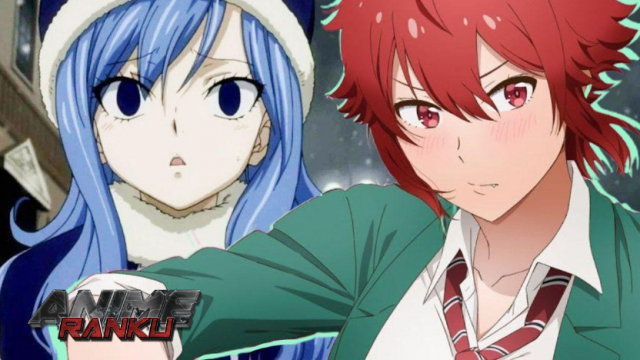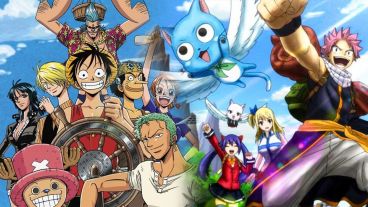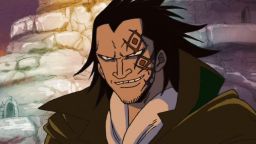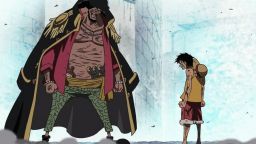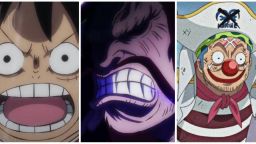Many things are known about Japanese animation, from shouting attack names to obligatory beach episodes and generous use of fan service, with some anime, such as Fairy Tail, being notorious for it. A little fan service goes a long way, and excessive or mean-spirited fan service can send a negative message to anime fans.
The running gag of some female characters bitterly envying their well-endowed female friends is one example. Girls and women, like everyone else, have different body shapes that develop in different ways. Anime makes this clear through the various physical designs of its female characters, which is fine; however, it's shallow and unnecessary to make less-endowed anime girls envious of their friends' bustier figures so frequently.
When the Narrative Makes Fun of the Bodies of Female Characters

Occasionally, it appears that an anime character will think, feel, or say something solely for the sake of levity or to conform to well-established anime conventions, rather than speaking for themselves. Such dialogue or actions rarely develop the character because the character is forced to conform to certain conventions by the script. Female body envy is an R-rated example of how this can break the immersion. People, fictional or otherwise, are often conscious of their own bodies and may compare themselves to others for a variety of reasons. Body image issues are real and relatable, so they shouldn't be treated as a cheap, obligatory gag in anime episodes.
This particular running joke suggests that in most anime series, at least one female character, often a teenager, will bitterly envy another girl's bustier figure. For discretion's sake, the first girl usually only thinks about this to herself and doesn't say anything aloud, but the internal dialogue makes everything clear to the audience even if the other female character is unaware. The envious girl will feel terrible about herself, unfavorably comparing her bust to the other girl's, and she might wonder how on earth the other girl attained such a figure. Often, the joke ends there, leaving a lot that's merely implied. Perhaps the envious girl is upset that her better-endowed counterpart will get all the boys' attention, for example, or the envious girl was already having body image issues and seeing her better-endowed friend or classmate makes it worse.
Rarely does this joke lead to substantial character development or explore sympathetic and relatable themes in a constructive way. This recurring joke is typically shallow and done purely for humor's sake, and by nature, it's at the envious girl's expense. With a lack of substance and a focus on body shaming, this recurring joke is actually mean-spirited on the script's part and serves no real purpose in the story. Such scenes can and arguably should be omitted from anime if cheap humor is the only intention. Anime stories often explore deep personal themes about self-worth, facing one's inner demons, overcoming personal flaws and more, and that includes the topic of body image. However, having one girl superficially envy another girl's generous bust and then dropping the subject entirely once the joke is delivered does no one any favors.
Appealing Characteristics Extend Beyond Appearance

Even by anime fan service standards, it's superficial and pointless for jokes to focus on something as simple and typically meaningless as a girl's chest size. Fan service is a deeply ingrained part of manga/anime and will probably remain so for many years to come, but discretion is still essential, and mean-spirited jokes are becoming less and less accepted. A little fan service goes a long way, and even with characters like Juvia Lockser in Fairy Tail or Tomo Aizawa in Tomo-chan Is a Girl!, outward beauty is just one small part of a character.
With or without fan service, any anime character must be designed as a well-rounded person so they can be compelling, sympathetic and exciting to watch, no matter the genre or plot. This is a universal must in storytelling, but in anime in particular, female characters often have unbalanced and even warped designs. A lot of attention is paid to their appearance, which opens the doors to fan service and certainly body envy from other, less-endowed female characters. There's no harm in having an outwardly beautiful female character who's adored by her viewers and fellow cast members, but making that the primary focus is often asking for trouble.
Such characters can easily become walking advertisements for fan service, and some creators, such as Fairy Tail's Hiro Mashima, are prone to doing so. Juvia Locker is like that, defined primarily by her obsession with Gray Fullbuster and Wendy Marvell's intense envy of Juvia's motherly figure (and that of other Fairy Tail members, too). Female characters with the best design are well-rounded in terms of appearance, personality, flaws, goals, thematic relevance, combat strength, relationships, and more.
When this occurs, a great female character can be admired and even envied for reasons other than her ample chest. Superficial bust envy is pointless, but if a female character inspires the other girls with her genuine strengths, those other girls may envy or feel intimidated at first, but will constructively strive to be more like her. A situation like this is flattering and positive for everyone involved, and it's what distinguishes a true Best Girl.
